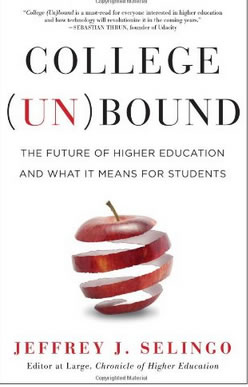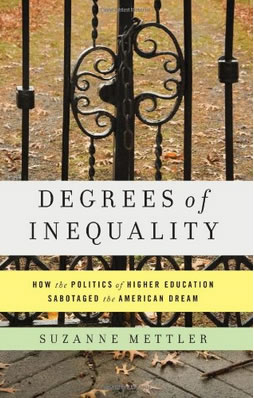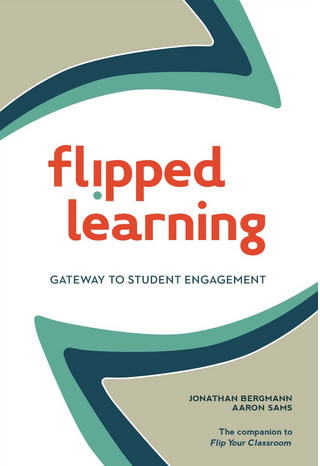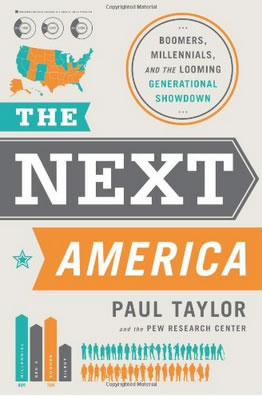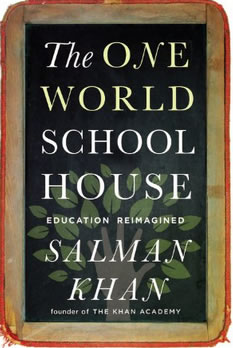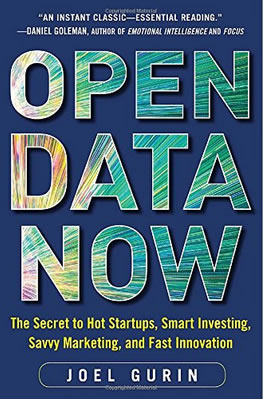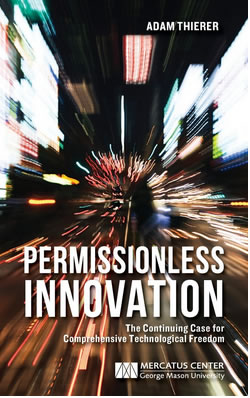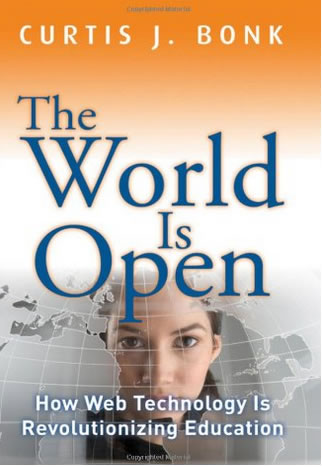There’s no better time to get caught up on industry and education than during summer vacation
 Summer vacation, while also the perfect time to pretend you’re not enjoying your niece’s copy of Twilight with a mojito in-hand, is also the best time to catch up on fascinating books that can help broaden your perspective on issues in the field of technology, education and educational technology.
Summer vacation, while also the perfect time to pretend you’re not enjoying your niece’s copy of Twilight with a mojito in-hand, is also the best time to catch up on fascinating books that can help broaden your perspective on issues in the field of technology, education and educational technology.
And while it’s always satisfying to read dense epics on topics you can brag to your peers about, these books are not chocked full of thick technical jargon, but rather, innovative and well-researched thoughts on influencing trends and disruptions, written in ways to promote discussion.
From how open data is changing policy to how Millennials are turning Boomer culture on its head, and from a collection of recent developments in Flipped Learning best practices to the philosophy behind free education, these recently published (most are within the last year) books offer a range of topics that should hit a cord not just with invested educators, but anyone interested in learning more about how the cornerstones of our society are in flux.
What’s on your summer reading list? Have you read any of these books? Thoughts? Be sure to leave your comments in the section provided below, email me at mstansbury@campusnews.com, or find me @eSN_Meris on Twitter.
(Next page: Ed-tech summer reading 1-5)
[Listed in alphabetical order by book title]
1. Average Is Over: Powering America Beyond the Age of the Great Stagnation (2013) by Tyler Cowen
This book by the renowned economist generated a lot of press! Cowen believes a large share of income will continue to go to a relatively small elite of educated people as middle class jobs continue to erode due to the loss of industrial competitiveness. Technology will make it easier for anyone to break into this elite, but Cowen is not optimistic about the chances for those regions and individuals that either cannot or do not add value to capital. He reveals the essential nature of the new economy, identifies the best path forward for workers and entrepreneurs, and provides readers with actionable advice to make the most of the new economic landscape.
2. Beyond the University: Why Liberal Education Matters (2014) by Michael Roth
Contentious debates over the benefits—or drawbacks—of a liberal education are as old as America itself. In this provocative contribution to the disputes, university president Michael S. Roth focuses on important moments and seminal thinkers in America’s long-running argument over vocational vs. liberal education. Roth explores historical and current arguments, considers the state of higher education today, and concludes with a stirring plea for the kind of education that has, since the founding of the nation, cultivated individual freedom, promulgated civic virtue, and instilled hope for the future.
3. College Unbound: The Future of Higher Education and What It Means for Students (2013) by Jeffrey Selingo
In College (Un)bound, Jeffrey J. Selingo, editor at large for The Chronicle for Higher Education, argues that America’s higher education system is broken. The great credential race has turned universities into big business and fostered an environment where middle tier colleges can command elite university-level tuition while concealing staggeringly low graduation rates and churning out students with few hard skills into the job market. Selingo not only turns a critical eye to the current state of affairs in higher education, but he also predicts how technology will transform it for the better. Free massive online open courses (MOOCs) and hybrid classes, adaptive learning software, and the unbundling of traditional degree credits will increase access to high quality education regardless of budget or location and tailor lesson plans to individual needs.
4. Degrees of Inequality: How the Politics of Higher Education Sabotaged the American Dream (2014) by Suzanne Mettler
Acclaimed political scientist Suzanne Mettler explains why the higher education system has gone so horribly wrong and why the American Dream is increasingly out of reach for so many. In her eye-opening account, she illuminates how political partisanship has overshadowed America’s commitment to equal access to higher-ed. As politicians capitulate to corporate interests, owners of for-profit colleges benefit, but for far too many students, higher education leaves them with little besides crippling student loan debt. Meanwhile, the nation’s public universities have shifted the burden of rising costs onto students. Degrees of Inequality offers an impassioned call to reform a system that has come to exacerbate, rather than mitigate, socioeconomic inequality in America.
5. Flipped Learning: Gateway to Student Engagement (2014) by Jonathan Bergmann and Aaron Sams
Flipped classroom pioneers Jonathan Bergmann and Aaron Sams take their revolutionary educational philosophy to the next level by discussing what happens next—when a classroom is truly student-centered and teachers are free to engage with students on an individual level. Loaded with powerful stories from teachers across curriculum and grade levels, Flipped Learning will once again turn your expectations upside-down and fuel your excitement for teaching and learning.
Another great book on Flipped Learning also just came out this month and is worth a look: Time for Learning: Top 10 Reasons Why Flipping the Classroom Can Change Education (2014) by Kathleen Fulton.
(Next page: Ed-tech summer reading 6-10)
6. The Next America: Boomers, Millennials, and the Looming Generational Showdown (2014) by Paul Taylor and the Pew Research Center
For the last decade the Pew Research Center has been doing some of the best public polling in the world. Paul Taylor, who has overseen much of this work, puts the results of this and other research into a coordinated snapshot of how America is evolving. In separate chapters he describes how public life and opinion is changing on important issues such as marriage, the use of technology, immigration, finance and the role of government. Overall Taylor paints a fairly optimistic view of the future clouded only by the unsustainability of the government’s commitment to the Baby Boomers, particularly in the form of unsustainable entitlement spending.
7. The One World Schoolhouse: Education Reimagined (2012) Salman Khan
Like many innovators, ex-engineer and hedge funder, Salman Khan (creator of Khan Academy) rethinks existing assumptions and imagines what education could be if freed from them. And his core idea—liberating teachers from lecturing and state-mandated calendars, and opening up class time for human interaction—has become his life’s passion. In this book, Khan presents his radical vision for the future of education, as well as his own remarkable story.
8. Open Data Now: The Secret to Hot Startups, Smart Investing, Savvy Marketing, and Fast Innovation (2013) by Joel Gurin
Open data went from a niche topic among a few computer scientists and activists to a subject of national debate and a presidential executive order in a few short years. This is due in no small part to the work of open data evangelists like Gurin, a senior advisor at New York University’s GovLab. This book is at once a primer on what open data is and how it can be used, as well as a call to action for government to embrace open data and make these applications more accessible. The book also contains innumerable examples of present and future applications for open data, which are sure to prove inspiring for entrepreneurs, scientists, and tech companies alike.
9. Permissionless Innovation: The Continuing Case for Comprehensive Technological Freedom (2014) by Adam Thierer
Mercatus scholar Adam Theirer provides a succinct treatise on the merits of “permissionless innovation,” or the idea that policymakers should leave innovators free to create without first seeking their approval. This model of technological innovation serves as a stark contrast to the countervailing “precautionary principle”—the belief that innovators should be restrained until they can prove that they have sufficiently addressed risk—which underpins the thinking of many policymakers. Theirer’s book is a compelling read, and one that is supremely relevant to a host of technology policy debates from drones to 3D printing to crypto currencies.
10. The World Is Open: How Web Technology Is Revolutionizing Education (2011) by Curtis Bonk
To help educators and others understand what’s possible with web-based technology, Curt Bonk employs his groundbreaking “WE-ALL-LEARN” model to outline 10 key technology and learning trends, demonstrating how technology has transformed educational opportunities for learners of every age in every corner of the globe. The book is filled with inspiring stories of ordinary learners as well as interviews with technology and education leaders that reveal the power of this new way of learning.
- 25 education trends for 2018 - January 1, 2018
- IT #1: 6 essential technologies on the higher ed horizon - December 27, 2017
- #3: 3 big ways today’s college students are different from just a decade ago - December 27, 2017




